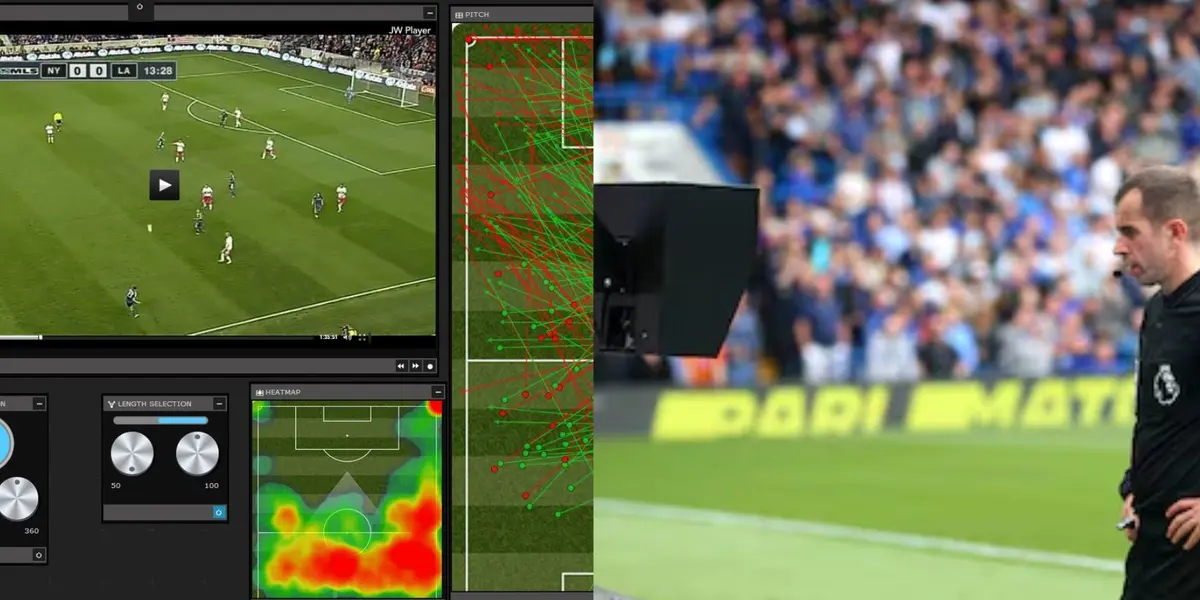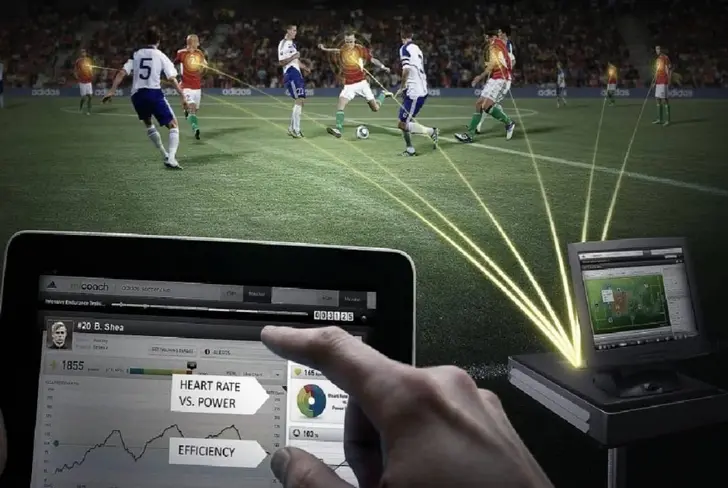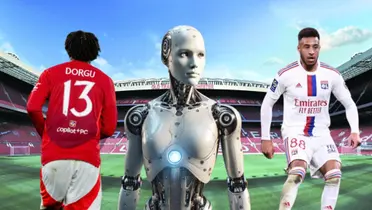How is technology changing the future of football? Complete analysis of the impact of VAR, data, and e-sports
The transformation of football: A deep analysis of the technological impact on the king of sports

From our position at the epicenter of English football, we have witnessed an unprecedented metamorphosis in this sport. Technology, once an element foreign to the pitch, has infiltrated every aspect of the game, from refereeing decisions to player performance analysis. This change, although controversial at times, has redefined the essence of football, generating a passionate debate about its future.
Technological evolution has not only modified the way the game is played, but also how football is experienced and understood. We are at a turning point where tradition and innovation collide, creating a new paradigm that demands deep reflection.
Refereeing in the digital age: Justice or controversy?
The introduction of VAR (Video Assistant Referee) has undoubtedly been the most significant change in modern refereeing. The promise of reducing human errors and increasing justice on the field has generated both praise and criticism. The accuracy of goal-line technology, on the other hand, has eliminated doubts about whether a ball has crossed the line or not, an advance that has been widely accepted.
However, the interpretation of VAR images and the time it takes to make decisions have generated controversy. The inherent subjectivity of football, even with the help of technology, remains a topic of debate. Artificial intelligence, however, could be the key to more objective and efficient refereeing in the future.
Data analysis: The science behind performance
Data analysis has revolutionized the way teams approach training and strategy. Wearables and sensors provide detailed information about players' physical performance, allowing coaches to personalize training programs and prevent injuries. Big Data is used to analyze game patterns, identify strengths and weaknesses, and optimize tactics.
Simulation software allows players to train in virtual environments, improving their decision-making and technical skills. Sports science, driven by technology, has raised the level of professionalism in football, making it an increasingly precise and efficient sport.

The spectator experience: Immersion and connectivity
Technology has also transformed the way fans experience football. Augmented reality (AR) and virtual reality (VR) offer new perspectives on the game, allowing spectators to feel as if they were on the field. 360-degree broadcasts and smart stadiums improve connectivity and personalization, creating a more immersive and engaging experience.
- Technology has significantly impacted refereeing, data analysis, and the spectator experience.
- VAR and goal-line technology have improved the accuracy of refereeing decisions.
- Data analysis allows teams to optimize performance and strategies.
- Augmented reality and virtual reality offer new ways to experience football.
- E-sports and gamification are bringing football closer to new audiences.
E-sports and gamification: Football in the virtual world
The rise of e-sports has created a new dimension for football, attracting a young and digitally native audience. FIFA eSports tournaments have become major events, with professional players and million-dollar prizes. Fantasy apps and prediction games increase fan interactivity and participation. Streaming platforms have turned football into digital entertainment content, accessible anytime, anywhere.
As technology continues to advance, we must reflect on its impact on the essence of football. How can we balance innovation with tradition? How can we ensure that technology is used fairly and equitably? These are crucial questions we must address to build a sustainable future for the king of sports.
Technology offers great potential to improve football, but it also poses ethical and social challenges. We must be responsible in its implementation, ensuring that it is used for the benefit of the game and its fans.
What you need to know about the impact of technology on football:
- VAR has changed the way refereeing decisions are made, generating debate and controversy.
- Data analysis allows teams to optimize player performance and tactical strategies.
- Virtual and augmented reality are transforming the spectator experience, offering new ways to experience football.
- E-sports and gamification are bringing football closer to new audiences and creating new forms of entertainment.
- Technology poses ethical and social challenges that must be addressed to ensure a sustainable future for football.
More news

The Numbers Don't Lie: Casemiro's Dominance Returns
31/03/2025

United's Dream Pairing: The Duo Fans Are Eager to See
31/03/2025

Hojlund's Fate: Will He Stay or Leave Man United?
31/03/2025

Højlund's Plummeting Value: A Cause for Concern at Man United
31/03/2025

Giggs' Misjudgement: Depay's Free-Kick Hopes Fall Flat
31/03/2025

Man United's Summer Clearout: Players on the Chopping Block
31/03/2025

Financial Divide: Man United's Value Dwarfs Olympique Lyon's Squad Cost
30/03/2025

Onana Exit Rumors Swirl: How the Goalkeeper Is Responding
30/03/2025

Eriksen breaks the silence about the rumors of not renewing
30/03/2025

World-Class Player Available: Romano Reveals Transfer Bombshell
30/03/2025

Ugarte's Premier League Insight: Key Differences From Ligue 1 Revealed
30/03/2025

Garnacho Outshines Salah and Haaland: A Stunning Statistical Triumph
29/03/2025

Ekitike's Staggering Stats: Why Man United Are Keen
29/03/2025

Beyond Legends: The United Player Who Rewrote Investment History
29/03/2025

Manchester's Goalkeeping Giants: Who Reigns Supreme?
29/03/2025

Fernandes' Fortune: Unveiling the Price Tag of United's Captain
29/03/2025

The Manchester United jewel that was rumoured for Barcelona ended up in an exotic league
29/03/2025

Father's Faith Pays Off: 100 Pound Bet on Son's United Debut
29/03/2025





